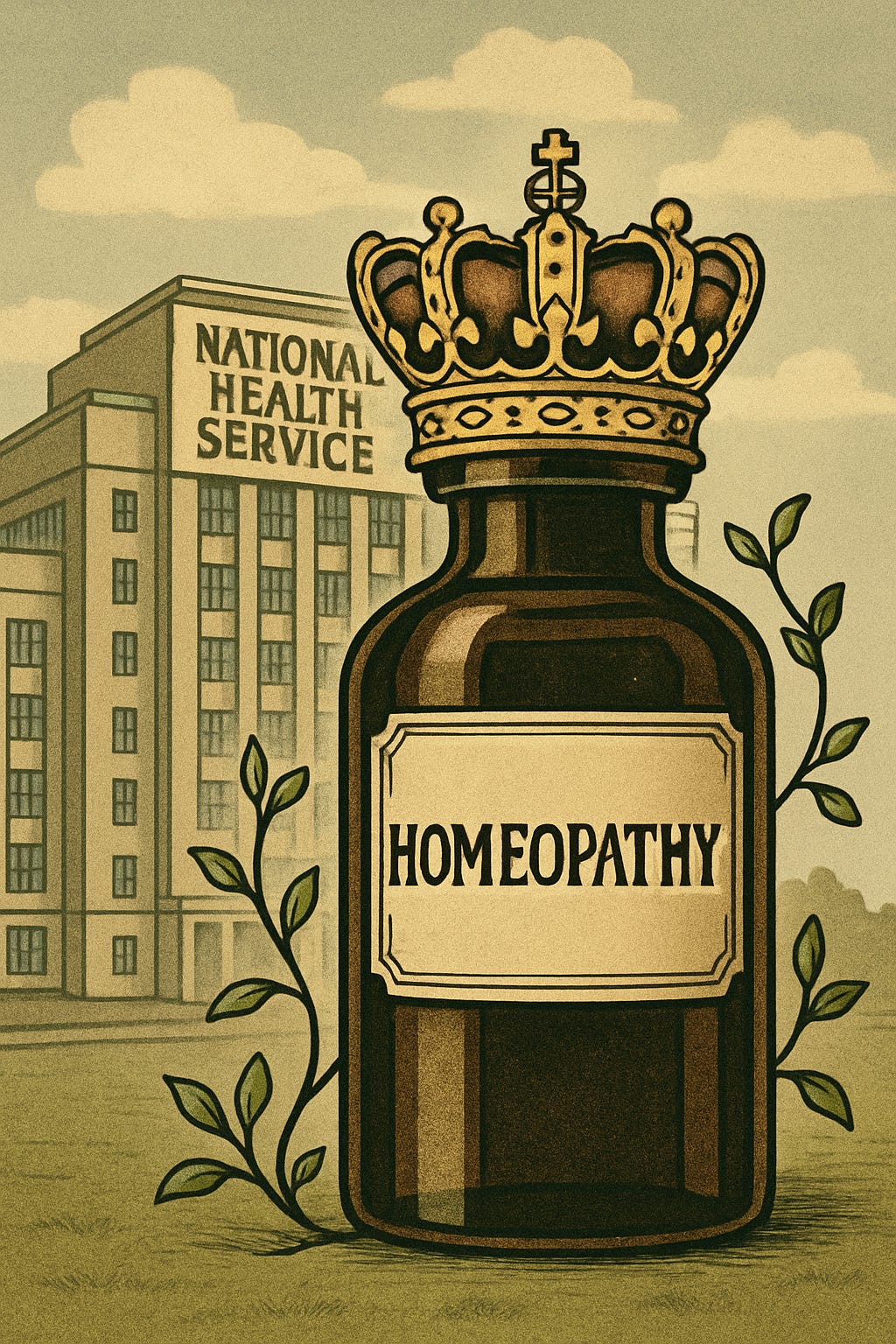A Case Study of Royal Interference: King Charles and Homeopathy - A Royal Influence on NHS Policy
Dr Adam North examines an example of royal interference in UK politics.
For decades, King Charles has been one of the most high-profile advocates of alternative and complementary medicine in the United Kingdom. Among his various interests, homeopathy has remained particularly prominent, drawing both public curiosity and criticism. His longstanding campaign to preserve and promote such treatments has raised questions about whether he sought to influence NHS policy and funding in favour of homeopathy - despite the broader scientific consensus challenging its efficacy.
A History of Advocacy
Charles's involvement in alternative medicine dates back to the 1980s. As Prince of Wales, he founded the Foundation for Integrated Health in 1993 with the aim of promoting a holistic approach to healthcare that included complementary therapies such as acupuncture, herbal medicine, and homeopathy. This foundation acted as a vehicle for lobbying healthcare policymakers and professionals.
Charles frequently used his platform to champion what he termed "integrated medicine", a philosophy that seeks to combine conventional medicine with alternative practices. In 2005, he gave a controversial speech to the World Health Assembly in Geneva urging policymakers to recognise the potential of alternative medicine in improving public health outcomes.
Exerting Pressure to Influence the NHS
King Charles crossed a line from personal advocacy into political lobbying in 2006. A report by The Guardian revealed that Charles had sent "black spider memos" - so -called because of his distinctive handwriting - to senior government officials, including then - Prime Minister Tony Blair. Some of these memos reportedly urged the government and NHS bodies to support and fund alternative medicine.
One notable controversy arose from his reported correspondence with the Medicines and Healthcare products Regulatory Agency (MHRA), in which he appeared to lobby for greater availability and regulatory support for homeopathic remedies, even as public scrutiny and scientific evaluations questioned their validity.
Moreover, in a 2006 letter to then-Health Secretary Alan Johnson, Charles allegedly advocated for greater NHS funding of complementary therapies, including homeopathy. Around the same time, the Smallwood Report - commissioned by Charles’s foundation - claimed that integrating complementary therapies into the NHS could lead to cost savings and improved patient outcomes. This report was distributed to NHS trusts, despite criticism over its methodology and lack of rigorous evidence.
Scientific Rebuttal
Thankfully, the scientific and medical communities responded with concern. The House of Commons Science and Technology Committee conducted an inquiry in 2009 - 2010, ultimately concluding that homeopathy is no more effective than a placebo and recommending that the NHS stop funding it. They were especially critical of the influence exerted by advocates lacking scientific grounding.
In a strongly worded statement, Professor Edzard Ernst, a leading expert in complementary medicine and a frequent critic of Charles’s views, accused him of “selling snake oil” and leveraging his status in ways that could undermine evidence - based medicine. Ernst had worked with the Prince’s Foundation on several initiatives before becoming publicly critical of its stance on homeopathy and other therapies.
I recently listened to Professor Ernst discussing Charles’ attempt to influence the NHS with Republic, and, as he said, “health politics are politics.” - Watch the interview here:
Decline of Homeopathy in the NHS
By the late 2010s, homeopathy's presence in the NHS had sharply declined. In 2017, NHS England advised GPs to stop prescribing homeopathic treatments, labelling them “a misuse of limited NHS funds.” A judicial review later upheld the decision, reinforcing the NHS’s position that resources should be allocated to treatments backed by robust scientific evidence.
A Royal Legacy in Question
Now as monarch, Charles no longer engages directly in political advocacy. However, the legacy of his past involvement continues to shape public debate over the role of alternative medicine in the UK. While some applaud his commitment to patient choice and holistic care, others argue that his efforts risked lending credibility to practices lacking scientific support.
While Charles never had formal authority over health policy, his influence - through letters, speeches, dinners, and charitable work - clearly reached into areas traditionally reserved for evidence-led decision-making.
Conclusion
Charles’s advocacy for homeopathy and his attempts to influence NHS policy represent more than a personal interest in alternative medicine - they underscore a deeper problem with the unaccountable power wielded by the British royal family. Using his privileged position to lobby for discredited treatments, Charles risked undermining science-based healthcare in favour of pseudoscience. While elected officials are held to democratic standards and public scrutiny, Charles operated behind closed doors, promoting unproven therapies with the implicit authority of the Crown.
Such interference is not only irresponsible but dangerous. At a time when public trust in medicine is critical, the royal family’s meddling in health policy - without evidence, transparency, or accountability - sets a troubling precedent. If modern Britain is to claim a commitment to rational, evidence-based governance, it must reckon with the ways in which inherited power can distort public policy. The monarchy should not be in the business of shaping healthcare decisions, especially when those decisions put lives at risk.
As the NHS continues to face budget pressures and demands for accountability, Charles remains more interested in promoting unnecessary and unproven alternative medicines, rather than helping to fund actual science led medicine.
For more on the role of the monarchy, see our article: Crown or Country? Why Britain Must Rethink the Monarchy


